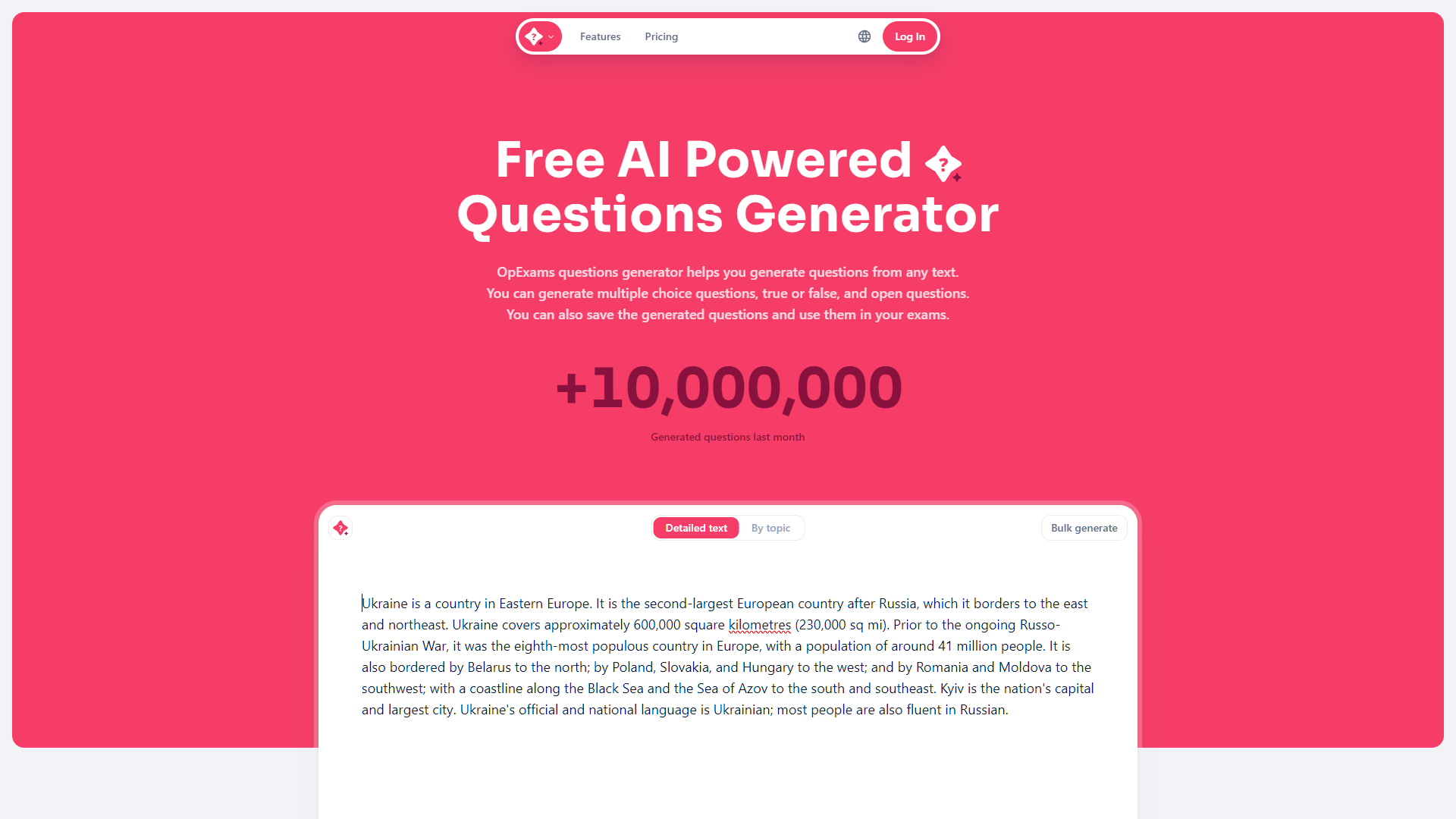Overview
The OpExams AI Questions Generator is an innovative tool designed to assist educators and learners in creating diverse types of questions from any given text. This AI-powered platform is capable of generating multiple choice, true or false, and open-ended questions, making it a versatile resource for exam preparation and educational assessments. With the ability to generate over 10 million questions last month alone, the tool has proven its efficiency and reliability.
Users can enjoy features such as topic-specific question generation, bulk question creation, and the organization of questions into collections for streamlined management. The tool also supports multiple languages, enhancing its usability across diverse educational contexts. Additionally, users can track their question generation history, adding a layer of convenience and control.
OpExams offers several pricing tiers to accommodate different needs and budgets: a free plan with basic features, a Pro plan at $5.99 per month for unlimited question generation, and a Business plan at $24 per month, which includes advanced capabilities like bulk generation from extensive texts and various formats such as PDFs and web links.
The platform also addresses user inquiries through an FAQ section and keeps users informed with a newsletter featuring educational tips, new features, and product updates, ensuring a well-rounded support system.
Key features
- Topic-based generation: Users can generate questions specifically tailored to certain topics, enhancing targeted learning and exam preparation.
- Bulk question creation: This feature allows for the generation of large quantities of questions at once, ideal for comprehensive test or quiz preparation.
- Versatile question types: The tool supports multiple choice, true or false, and open-ended questions, providing flexibility in assessment methods.
- Question collections: Users can organize generated questions into collections, making it easier to manage and retrieve them for future use.
- Multi-language support: The tool can generate questions in multiple languages, accommodating users from different linguistic backgrounds.
- Generation history tracking: Keeps a record of all past generated questions, allowing users to review and reuse them as needed.
 Pros
Pros
- Adaptive difficulty levels: The tool adjusts the complexity of questions based on user performance, ensuring appropriate challenge levels for different learners.
- Real-time feedback: Provides instant feedback on answers, helping users understand mistakes and learn effectively in real-time.
- Integration capabilities: Easily integrates with various learning management systems (LMS), enhancing the utility of digital educational environments.
- Customizable templates: Users can create or modify question templates, which allows for personalized question formats and guidelines.
- Interactive content support: Supports embedding of images, videos, and diagrams in questions, making them more engaging and informative.
 Cons
Cons
- Limited customization options: While the tool supports various question types, the customization of question structure and format might be restricted.
- Dependence on internet: Requires a stable internet connection to access and use the tool, which can be a limitation in low connectivity areas.
- Potential for content repetition: Bulk generation may lead to repetitive questions, reducing the effectiveness of the learning material.
- No offline functionality: Users cannot access the tool or their question collections without an internet connection, limiting usability in offline settings.
- Language quality variability: While it supports multiple languages, the quality of question generation may vary between languages.







